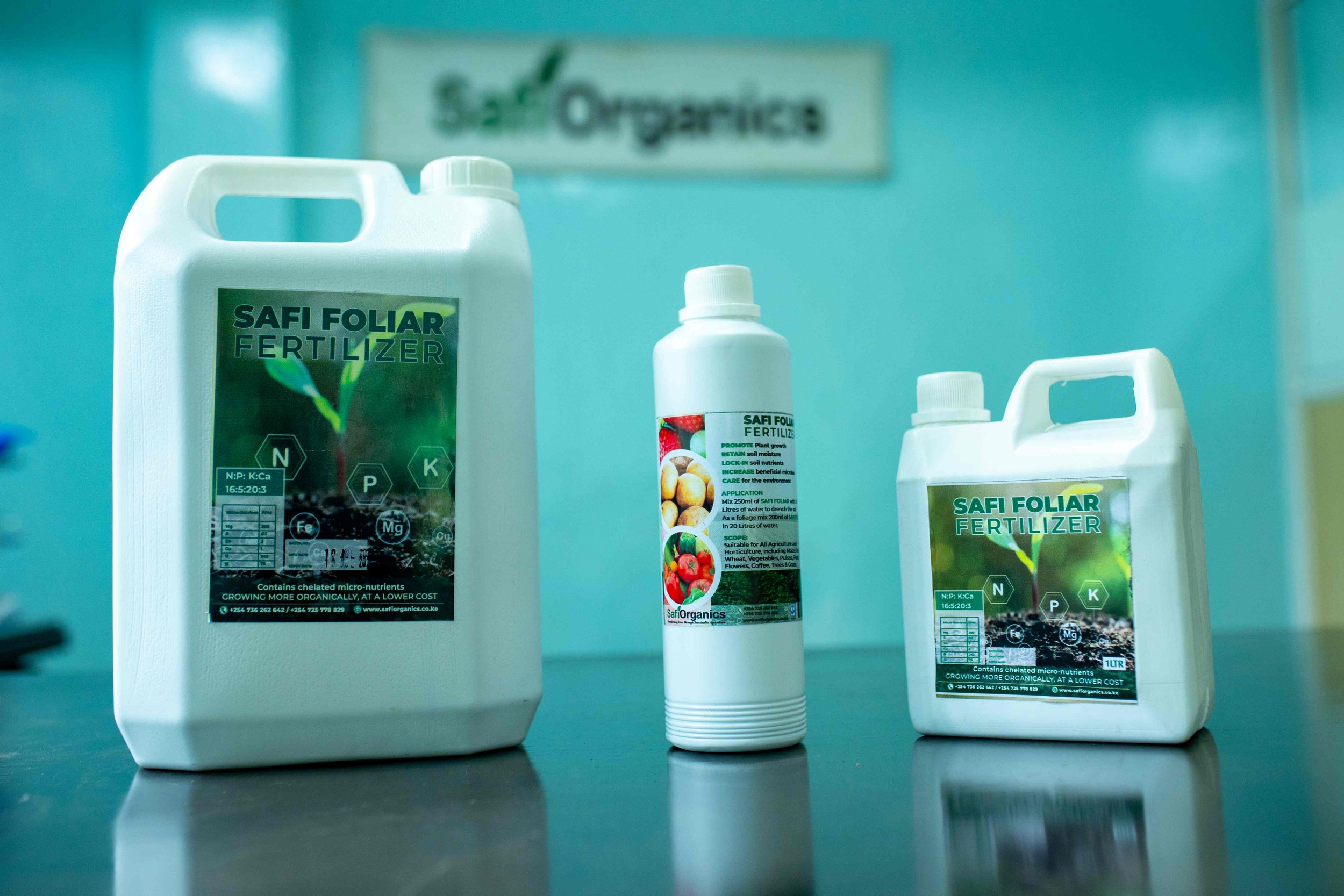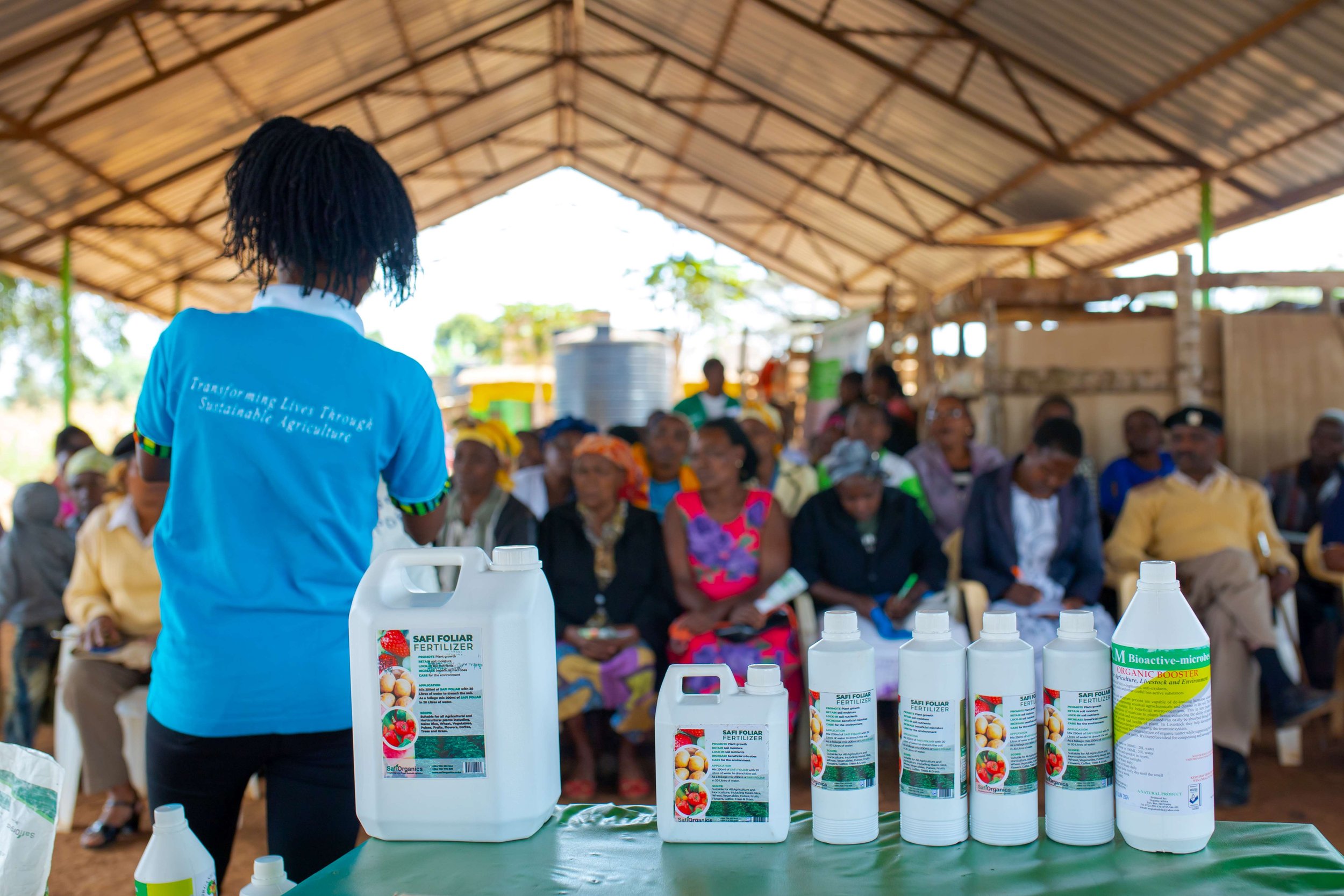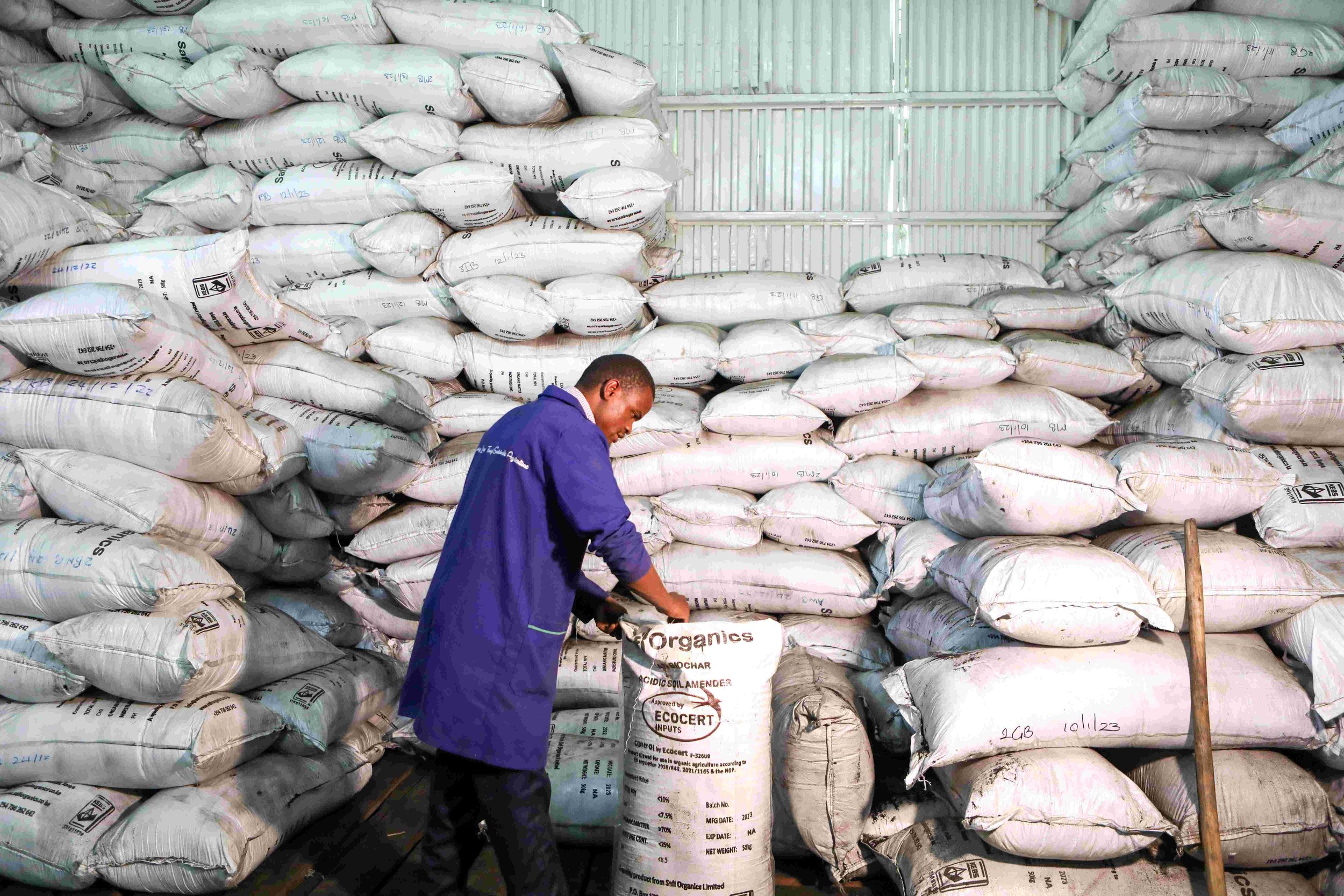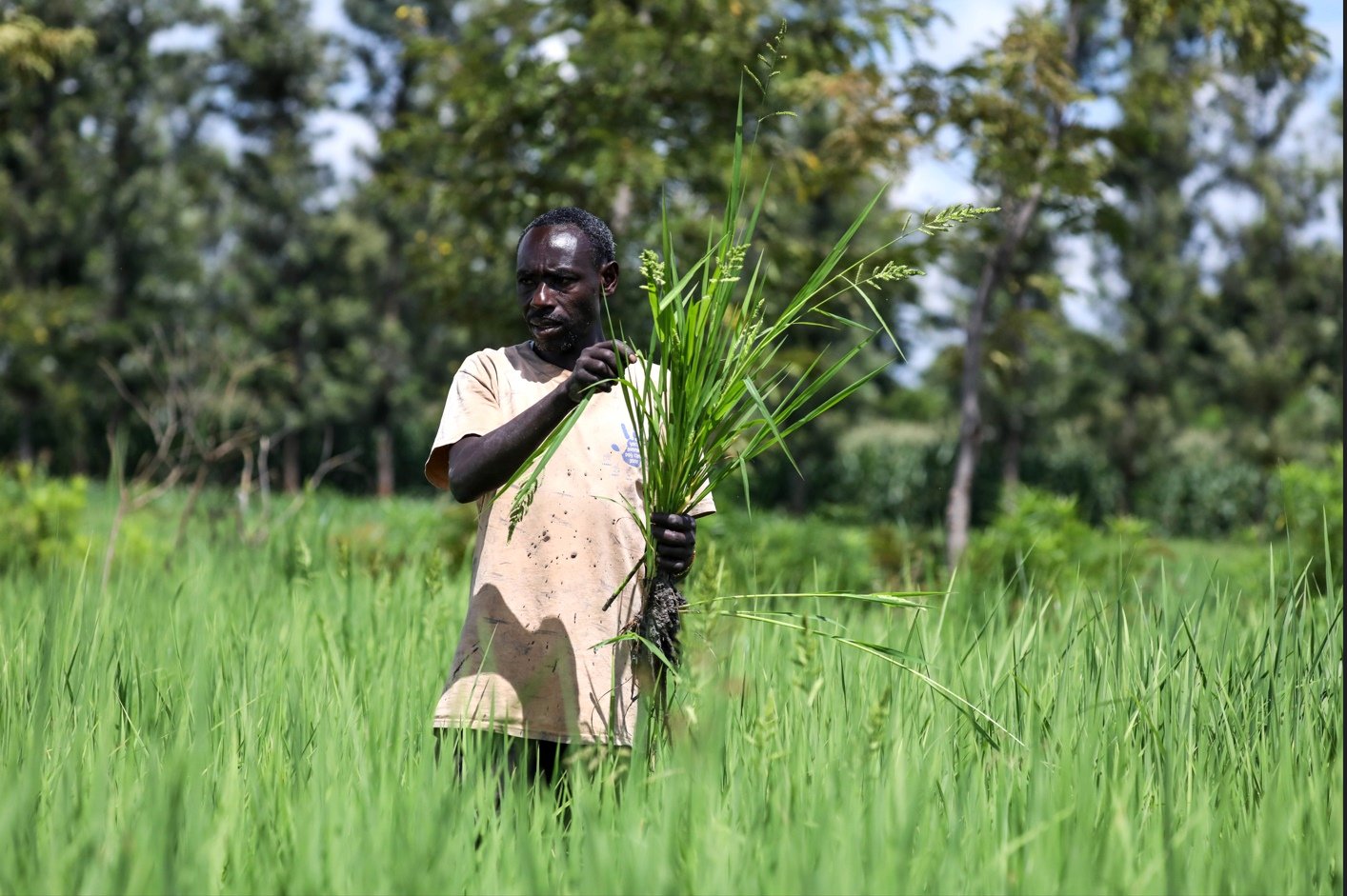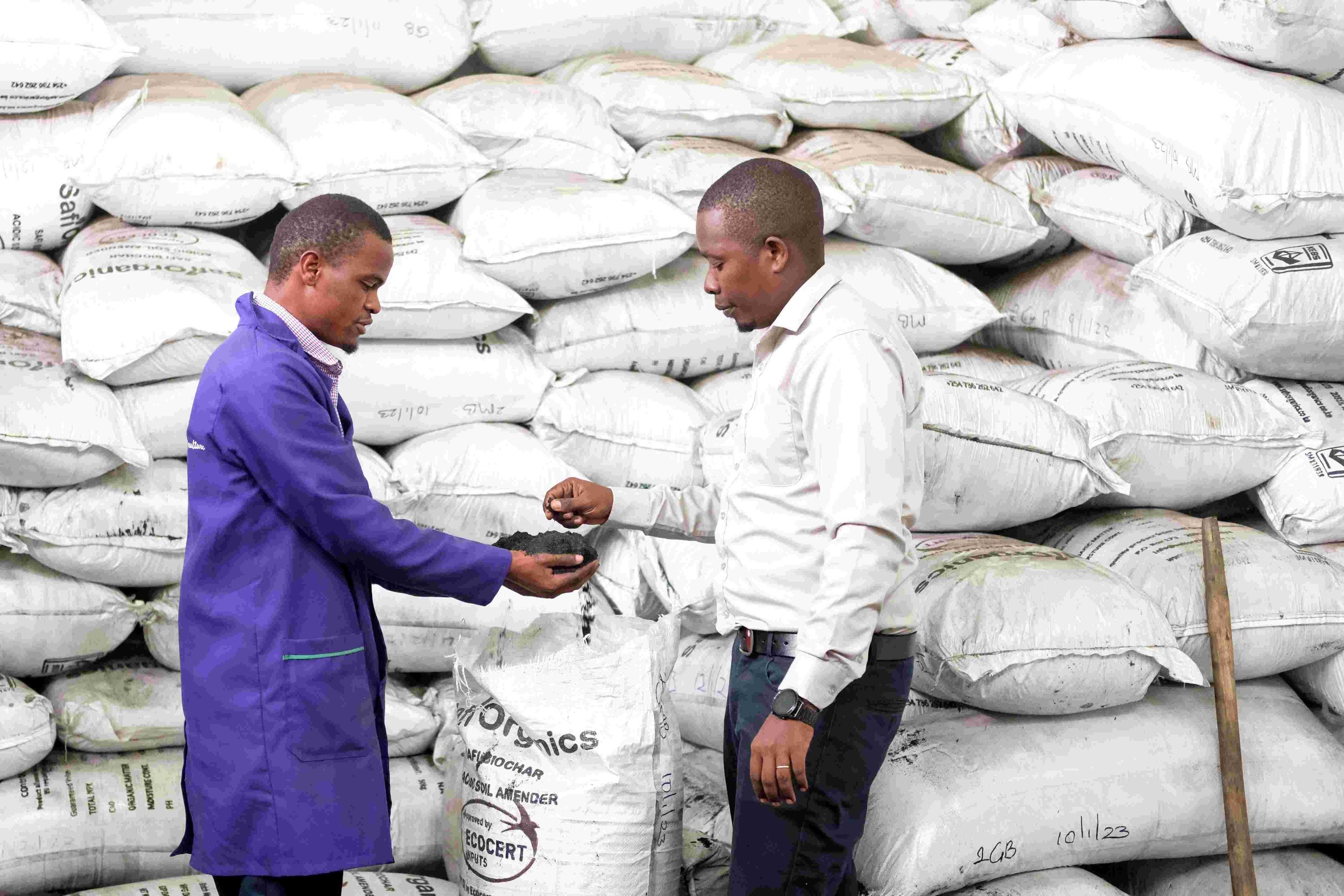LIONESS WEEKENDER COVER STORY
Safi Organics, harnessing the power of technology to create an impact-driven fertilizer production business
Joyce Kamande is a social entrepreneur born and raised in the semi-arid areas of central Kenya. She co-founded her fertilizer business, Safi Organics, in 2015 just after she graduated from University. As an Operations Officer, she has streamlined the business operations as she creates direct employment for over 50 rural youths, has a workforce of 65 in total, and is currently supplying her fertilizers across Kenya to over 35,000 farmers.
Lioness Weekender spoke to the inspirational Joyce Kamande about her vision for her business, and her passion for positively transforming local communities through tech-enabled fertilizer production.
What does your company do?
Safi Organics uses a combination of hardware technology and an internet-of-things real-time control and sensing system to decentralize and downsize the fertilizer production process, making it feasible to implement localized fertilizer production in rural villages using only locally available resources, labour, and waste. Because we eliminate long-distance fertilizer transportation, we also drastically reduce the fertilizer cost while offering farmers a much higher-quality product. Our product, Safi fertilizers, is a locally produced carbon-negative fertilizer that helps farmers improve yields by 30%. Furthermore, because our fertilizer production process can be implemented locally at the village level, we are able to alter our reaction condition and custom-tailor the fertilizer characteristics (e.g., pH, N, P, K) to the local soil type and crop growth requirements, almost at a single-farm granularity, in a way that traditional one-size-fits-all fertilizer production cannot achieve. Additionally we offer soil testing services and agronomical services.
Our key target market, are the rural smallholder farmers, take the example of Mr. Kibuchi, a smallholder farmer in rural Kirinyaga County, Kenya with a 1-hectare plot. He has been dependent on synthetic fertilizers and has seen his yields decline. He is concerned that his children will no longer be able to support themselves from the land. Having adopted our product, he increased his yields by 50% after one season. He sold the excess produce to generate enough cash to send two of his children to school. We have impacted over 12,000 farmers like Mr. Kibuchi. This is the kind of impact we want to put across over 100 million farmers across the continent who face the same struggles such as Mr. Kibuchi
What inspired you to start your company?
I hail from a semi-arid region in Kenya, where the stark reality of food insecurity left a profound mark on my upbringing. Witnessing children without enough to eat, even during school hours, fuelled my determination to make a difference. I diligently pursued higher education, aspiring for a white-collar career. However, destiny had a different plan. In my fourth year, I selflessly volunteered to assist a dear friend (who later became my co-founder) with research in waste management. It was during this journey that I uncovered a tremendous potential to transform our community. Post-graduation, I wholeheartedly joined them in the field, and thus, Safi Organics was born.
Why should anyone use your service or product?
In terms of energy-food nexus, our solution eliminates most of the enormous energy and fuel costs otherwise required to produce synthetic, chemical fertilizers in large-scale, centralized plants and import these fertilizers to rural areas. Therefore, we incur dramatic energy savings for farm inputs. In terms of water-food nexus, our solution helps the local soil retain moisture and nutrients more effectively, such that farmers can reduce the amount of both chemical inputs and irrigation needed for their crops to succeed by more than 15%.
Our patent-pending technology, validated and tested at Massachusetts Institute of Technology (MIT), utilizes a novel chemical process called oxygen-lean torrefaction to rapidly break down the long hard-to-digest cellulosic chains thermochemically. The resultant substrate is sufficiently organically rich to support microbial growth, and also retains nutrients/moisture in the soil more effectively. This substrate is then mixed with a special nutrient recipe (dependent on the soil and crop requirements) into a standalone fertilizer, Safi Sarvi. Our process, which takes only 4 hours to complete without requiring any external energy or fuel inputs. Ultimately, our differentiation comes from a new business model enabled by new technology. Most existing fertilizer companies are large-scale (100+ tons/day) and take advantage of the economy of scale. Our technology allows us unique access to rural, decentralized, small pockets of biomass for localized utilization that larger technologies cannot reach. Our hardware systems are affordable enough for most local community-based operators to own. We remotely coordinate our fleet of reactors, using machine learning to adjusting reaction conditions in real-time to variable input feedstock. This results in products matched and optimized to real-time agricultural demand. This market matchmaking/arbitrage model affords us to become a software service provider, where we can charge a per-ton fee for using our equipment fleet. This model has been proven in other sectors such as nanofabrication, but we are the first player in the biomass-to-value sector to deploy this approach, which would not have been possible without our portable and flexible conversion technology.
Tell us a little about your team:
The executive team is composed of Samuel Rigu (CEO), Joyce Kamande (COO), and Dr. Kevin Kung (CTO). Currently, the company employs 25 full-time and 40 part-time employees. The company also has a business advisory board consisting of individuals from the U.S. Department of Agriculture, the former CTO of Cummins, the CEO of KAPS, and Voxel8.
Samuel Rigu (CEO) grew up in rural Kenya and witnessed firsthand the challenges faced by low-income smallholder farmers. Determined to address this inequality, he pursued a degree in Agribusiness at the University of Nairobi. Subsequently, he worked as an agribusiness manager at the Turning Point Trust Farm, which had been running at a loss for many years. Under Samuel's leadership and through the implementation of organic farming practices, the company achieved financial profitability within six months. During this period, Samuel developed a keen interest in utilizing post-harvest crop residues, such as rice husks, straws, and bagasse, which farmers often burned in the open, to generate additional income for smallholder farmers. He began his journey with Takachar as a country director, focusing on transforming crop residues into low-cost, clean-burning cooking fuel briquettes.
Joyce Kamande (COO) also grew up in rural Kenya and observed firsthand the challenges faced by low-income smallholder farmers. She holds a master’s degree in logistics and supply chain management from Jomo Kenyatta University. With a strong interest in community development and food security, she co-founded Safi Organics in 2015 as Head of Marketing. After two years, she transitioned to establish an operations arm within the company, a role she has since been spearheading as the Chief Operating Officer. Her passion and leadership skills have been globally recognized, making her a trailblazer in the field of social entrepreneurship.
Dr. Kevin Kung (CTO), who holds a Ph.D., dedicated a decade to developing the core technology, initially at the Massachusetts Institute of Technology (MIT) and later within the company. He is the author of more than 10 scientific papers and the inventor of three patent applications. Kevin boasts 15 years of experience in engineering design and entrepreneurship, particularly in resource-constrained settings, including Nigeria (low-cost haematocrit centrifuge), Peru (rural electrification), India (waste management), and Uganda (water and sanitation projects). Kevin co-founded a prior company with Samuel Rigu (CEO) called SafiCoils, which successfully sold over one million low-toxin mosquito coils. He has extensive experience in managing research and development grants, amounting to over $1.5 million, from the U.S. federal government, the Commonwealth of Massachusetts, and the State of California.
Share a little about your entrepreneurial journey. And do you come from an entrepreneurial background?
My upbringing and professional trajectory had no direct connection to entrepreneurship. I acquired entrepreneurial skills on the job, only realizing that I was an entrepreneur when I entered accelerator programs. Until then, I primarily saw myself as a businesswoman. This journey has been a thrilling adventure, both personally and in terms of my career. My most significant accomplishment lies in the fusion of leadership and rural economic development.
What are your future plans and aspirations for your company?
We have been operating in the climate change space for a couple of years and our biochar-based fertilizer has demonstrated the potential to sequester 1.7 tons of CO2 from the atmosphere/acre in a year. We are qualifying our product in the carbon trading market such as Puro Earth, as our carbon-rich fertilizer blend sequesters plant-based carbon into the soil for hundreds of years. The carbon payment from the voluntary offset market comprises our second source of revenue. We take a 5% cut and pass the remaining carbon payment directly to the farmers in recognition of the carbon-negative agriculture that they practice.
As we scale up, we will work with local agricultural input-output companies and farmer cooperatives who will operate our village-based fertilizer plant. The hardware will be distributed to them by licensing to a large agricultural OEM and selling as a complementary product through the OEM's existing dealership and distribution network. For this we charge license fee to the OEM for the usage of our patents.
As a network of village-based fertilizer production plants are produced, the internet-of-things-based control system will enable us to monitor the input feedstock conditions, make autonomous adjustments to the reactor conditions, and customize the fertilizer output to the specific soil and crop requirements at a single-farm granularity. For this optimization based on our software-as-a-service, we will charge an ongoing $20/tonne usage fee.
All this alignment will enhance our impact to reach and impact to over 4 million smallholders across the country.
What gives you the most satisfaction being an entrepreneur?
Consider this revised statement:
"Let's take the example of Mr. Kibuchi, the second farmer to purchase our fertilizer. He is a smallholder farmer in rural Kirinyaga County, Kenya, with a 1-hectare plot. Mr. Kibuchi had long relied on synthetic fertilizers but had witnessed his yields steadily declining. He was worried that his children would no longer be able to sustain themselves from the land. However, since adopting our product, he achieved a remarkable 50% increase in his yields after just one season. He sold the surplus produce, generating enough income to send two of his children to school. What's even more exciting is that within three years, he had saved enough to purchase a second-hand tractor, which he now uses to plough fields for his neighbors, earning extra revenue. This additional income allowed him to build a modern and secure home for his family. Witnessing such transformative impacts is what gives me fulfilment and the motivation to continue my journey as an entrepreneur."
What's the biggest piece of advice you can give to other women looking to start-up?
My advice to young women aspiring to start their own ventures is simple: the time to initiate is now. There's no need to wait for women's empowerment to come knocking; let's proactively roll up our sleeves and carve out our place at the decision-making table. While I can't promise it will be effortless, I can assure you that it's not only achievable but also immensely worthwhile.
To find out more about Safi Organics, contact Joyce Kamande via email: joycekamande@safiorganics.co.ke or visit the company’s website and social media platforms:
Website: http://safiorganics.co.ke/
Videos:
1. Water and Energy For Food: https://youtu.be/4kFfrkj_CX4?si=V5-_97I0ZB0TUvZX
2. https://m.facebook.com/retvsmi/videos/net-zero-hero-joyce-kamande/563593764700859/
3. Climate Champion: https://youtu.be/w0CXl7ZbDFc?si=xessnxlB5P3CDYzN

